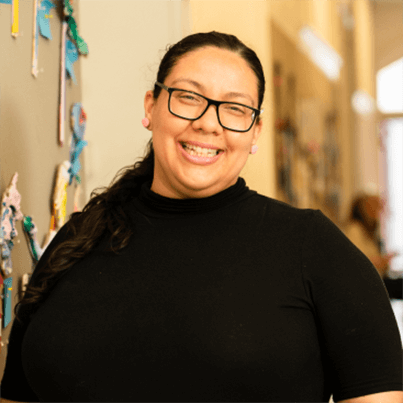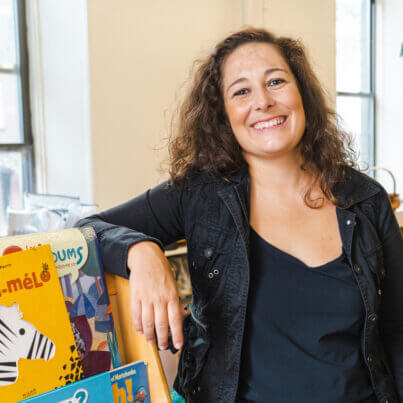In Pre-K 3, Pre-K 4, and Kindergarten, International School of Brooklyn incorporates play as an introduction to inquiry-based and open-ended learning. Our approach to early childhood education is designed to help students adapt to group learning while nurturing their full development – emotionally, socially, academically, physically, linguistically, and culturally. Preschool teachers foster strong relationships with and among their students to create a secure, supportive classroom environment where children can freely express themselves and develop their sense of identity.
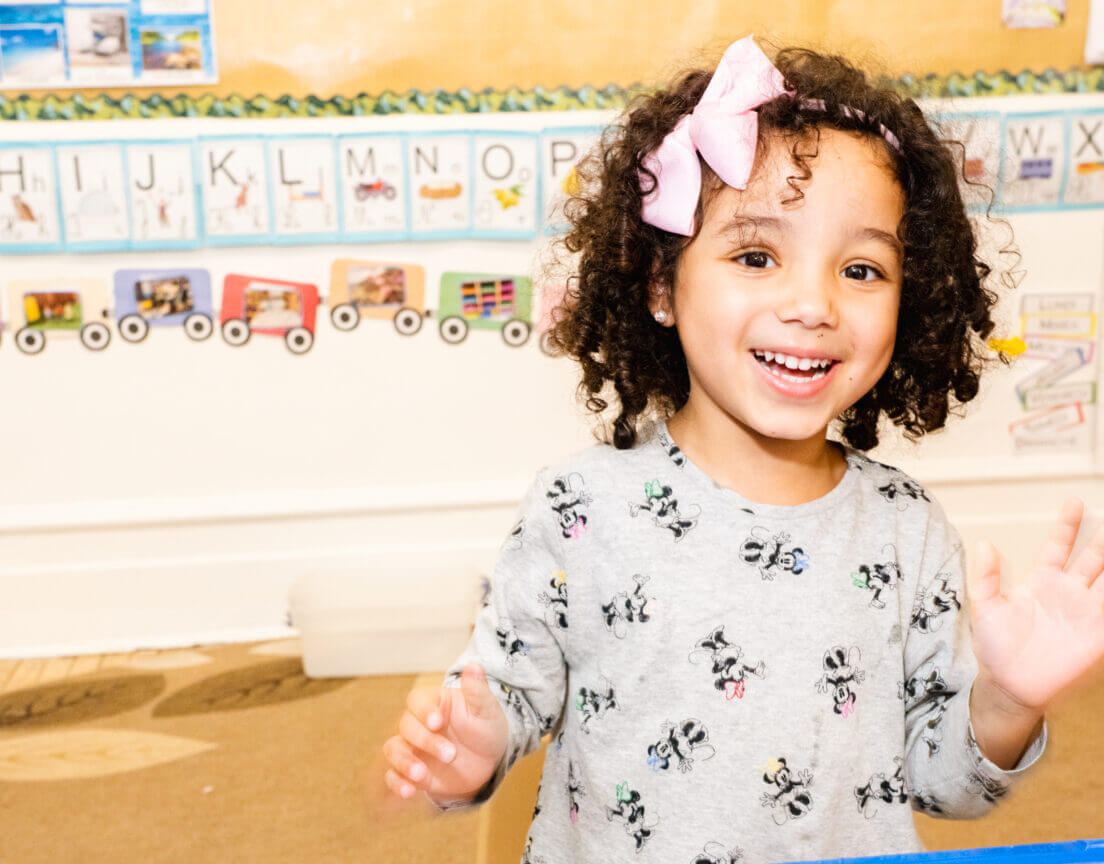
Supportive Learning Environment
Immersive Classrooms
Inquiry-based Learning
Supportive Learning Environment
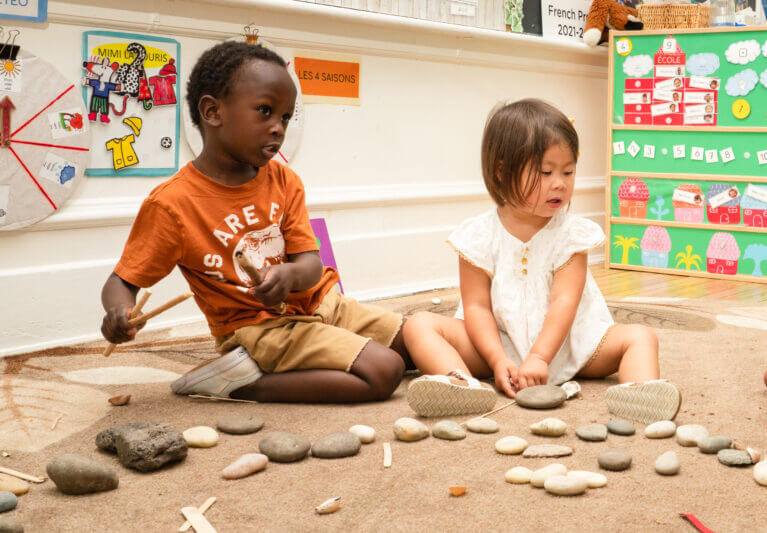
In Preschool, younger children’s inherent ability to absorb languages is maximized through daily routines, conversation, and play. By facilitating play and nurturing curiosity, teachers encourage students to spontaneously engage with their target languages. Motivated by their desire to know more about the world around them, students organically expand their vocabulary and increase their fluency in French or Spanish.
Language development is a central component of the school day in Preschool. Morning circle time and other daily routines reinforce lexicon and language structures through frequent exposure. Throughout the day, through teacher-directed inquiries and free play, students interact with their teachers and classmates exclusively in the target language. Song, movement, and engaging classroom activities ensure that students are captivated and connected with their target language throughout the school day.
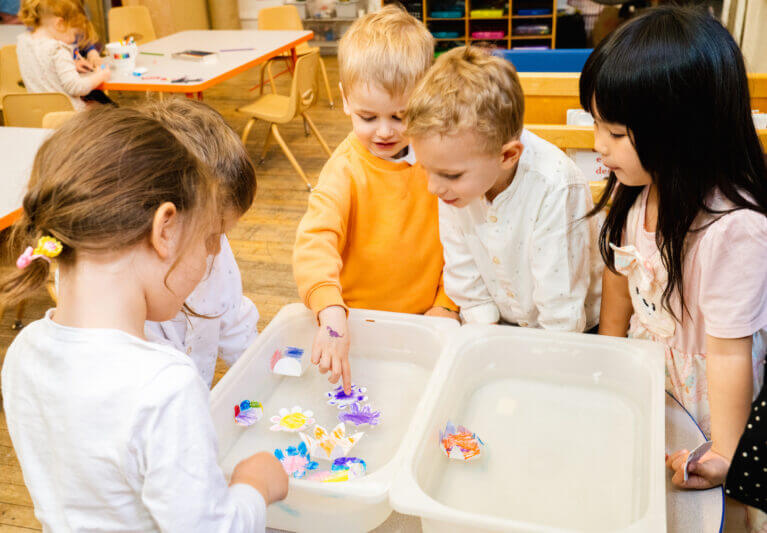
Open-ended play is the vehicle for learning in Preschool. Play helps young children reach cognitive milestones, as well as social and emotional developmental goals. Free play – or child-directed play – allows children to take what they’ve learned and enact it in their own way, benefitting both academic skills and creativity. Free play also teaches children about negotiation and compromise, in turn building life skills such as empathy, critical thinking, and problem solving.
ISB uses the International Baccalaureate Primary Years Programme as a framework for the curriculum in grades Pre-K 3 through 5th Grade. The Preschool curriculum provides students with a broad and balanced learning experience through the exploration of 4-6 transdisciplinary units over the course of each academic year.
Following the International Baccalaureate transdisciplinary themes, units of inquiry set the pace for learning in Preschool. The curriculum emerges via the exploration of various lines of inquiry related to each unit’s central idea. For example, in the Kindergarten “Homes Around the World” unit of inquiry, lesson plans are oriented around the idea that “shelters around the world meet the needs of the community.” Students then investigate and explore through the lenses of causation, connection, and function and discover various new concepts, such as the materials that go into housing and how they relate to their environmental conditions. As another example, in Pre-K 4, the “Celebrations” unit is centered around how people express their identity and traditions through celebrations. Throughout the unit, students dive into the ways that celebrations help to form our identities and connect us with different communities. These units are developed and modified based on ongoing inquiries and reflections of young learners whose curiosity drives the learning process.
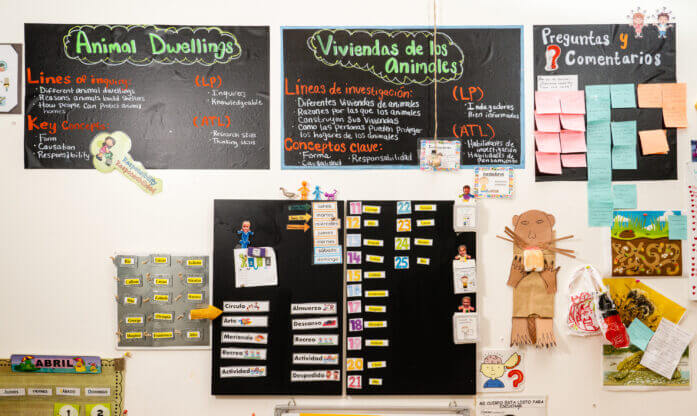
As students begin to adapt to group learning in the Preschool, our educators take a proactive and holistic approach to social-emotional learning that equips students with social skills they need to be able to share, learn, and create together. The IB transdisciplinary themes of who we are and how we express ourselves are integrated with approaches to learning, including self-management and communication skills, to reinforce social-emotional learning. ISB also follows Second Step, a comprehensive, research-based program which provides a progressive process for building social skills across developmental stages. This school-wide roadmap for social-emotional learning helps to promote a community of thoughtful and compassionate learners. Emotion management, empathy, friendship skills, and problem solving are emphasized throughout the school day in the context of both play and inquiry. Teachers also use unstructured times such as lunch and recess as opportunities to model and facilitate communication and social skills.
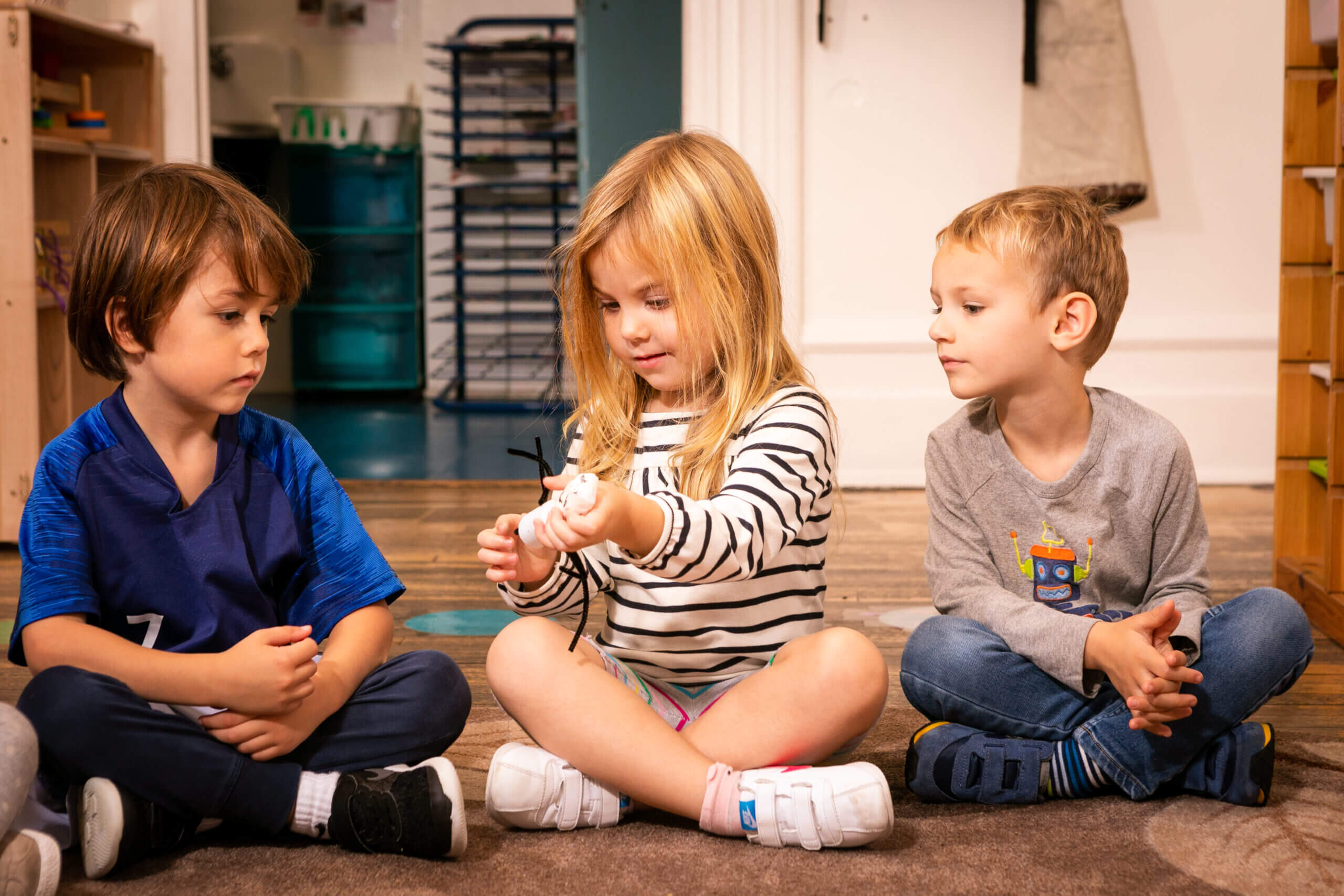
Literacy in Preschool is focused on growing students’ emergent literacy skills in the target language. Teachers engage students in early literacy skills, such as phonemic awareness, letter recognition, and story comprehension through a variety of activities and connections to students’ personal interests. Students in Pre-K 3 and Pre-4 begin to play with and manipulate sounds and letters in the context of their names, the classroom environment, and word games. They gain ownership of their written name to label their work, take pride in beginning to identify their classmates’ names, and start to read familiar words that surround them in their learning environment. After growing familiar with the full alphabet in the target language, students continue to consolidate this skill in Kindergarten, engaging in meaningful literacy activities.
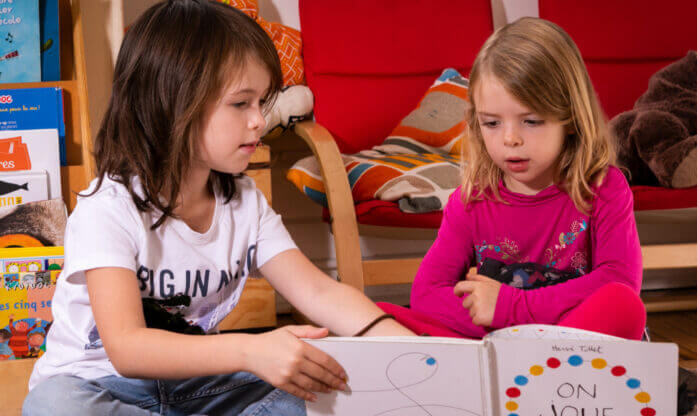
Numeracy in Preschool is focused on developing the knowledge, skills, and mindset needed to understand and use mathematical concepts in a wide range of contexts. Every day in the classroom is another step forward in early learners’ numeracy capabilities. Through play, they explore and make sense of the world by finding patterns, manipulating shapes, measuring, sorting, comparing, locating, counting, grouping, estimating, connecting, playing with possibilities, posing and solving problems.
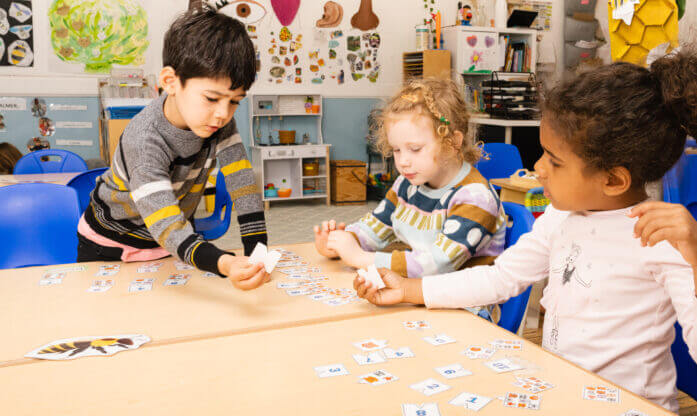
Physical education classes and activities provide students with the opportunity to gain an appreciation for physical expression and exercise. These classes help to lay foundational skills for students’ physical development as they explore their motor skills and coordination in a positive, encouraging, and fun environment. Through their introduction to various games and sports, students also develop focus-building and comprehension skills and learn about making safe and healthy choices in the context of individual and collaborative physical activity.
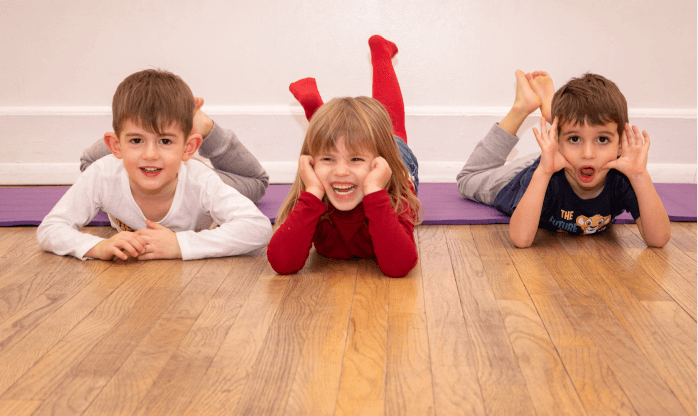
The arts empower children to discover and celebrate their individuality while developing essential skills for lifelong learning. In the Preschool curriculum, both music and visual arts play a pivotal role in fostering creativity, self-expression, and artistic appreciation. Our visual arts program encourages students to express themselves through diverse media like drawing, painting, printmaking, sculpting, and ceramics. This artistic exploration allows them to connect with their feelings, experiences, and imagination, a process which is vital to their emotional and cognitive development. Our music program introduces students to the dynamic world of movement and sound, advancing their self-expression through a variety of rhythmic exercises, playful melodies, and interactive activities.
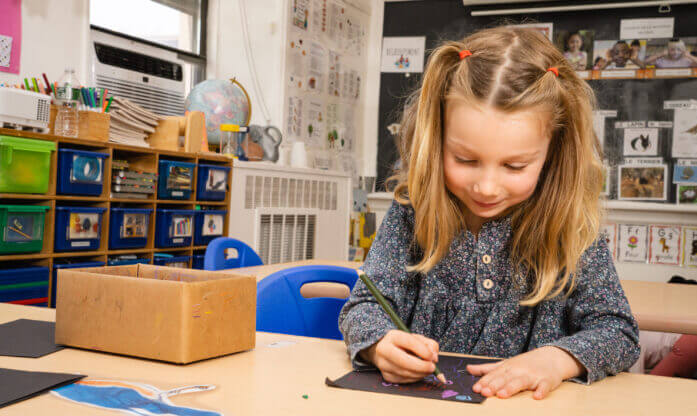
Teachers guide students’ exploration of the world around them by promoting inquiry-based learning, play-based activities, multilingual experiences, and real-world connections. Students are encouraged to ask questions and explore topics that stem from their interests, observations, and experiences. As facilitators in the learning process, teachers support each child’s innate curiosity and guide them to find answers through hands-on experiences and investigations. This approach helps students learn content and language in a meaningful and engaging manner, developing a love for learning and deeper understanding of the world in the process.
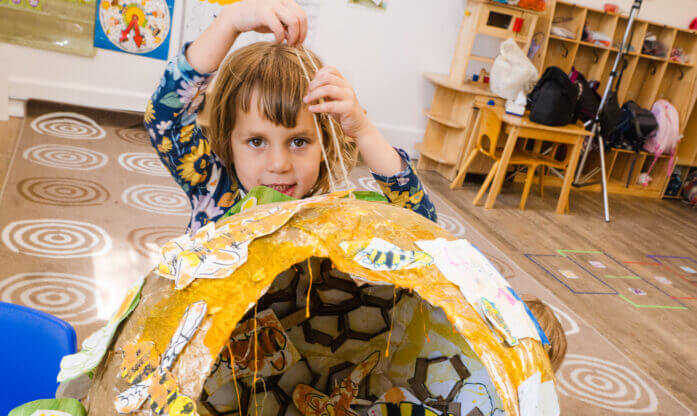
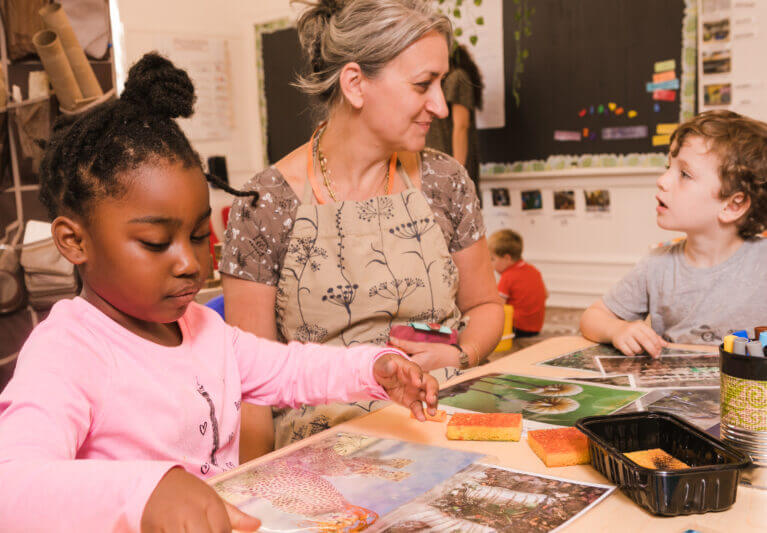
In the early childhood years, a balanced day is essential to creating a learning environment where students can flourish. While every day might be different, Preschool schedules are intentionally designed to offer students comfort and affirmation through daily routines. The school day includes unstructured play and open-ended exploration times, as well as teacher-directed inquiry and group activities.
Daily routines offer students a comforting welcome to new spaces, thereby encouraging independence and exploration. Each morning, from the moment the student walks in, our Preschool educators promote a sense of belonging that sets the stage for a flourishing classroom community. The day is structured to provide ample time for both movement and rest, with two daily recesses and a daily quiet time for students to tune in with their bodies and recharge. Snack and lunch times are busy social moments where students and teachers come together and get to know one another better.
All Preschool students enjoy a weekly Art, Music, and Library class with a specialist teacher, in addition to a twice-weekly Physical Education class. In Kindergarten, students have a weekly Science class and a twice-weekly English class.
